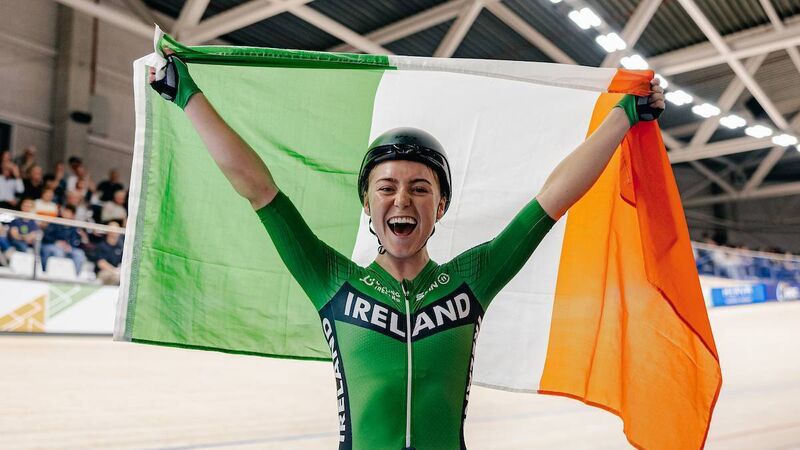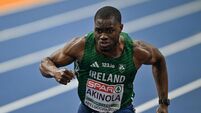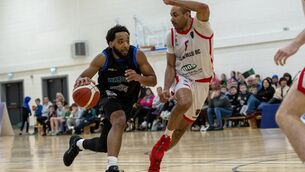Lara Gillespie: ‘I am known as a nomad on my team. I'm a bit more chaotic than other cyclists because of where I am from’

HISTORY MAKER: 23-year-old Wicklow native Lara Gillespie on Thursday became the first Irish cyclist to win an elite title at the European track championships.
For long cycles, Lara Gillespie breaks the five hours or so down to a set playlist. Two hours of silence, two hours of podcasts, the last hour of maximum efforts call for motivational music.
On a recent training camp in Majorca, she opted for an audiobook with a particular visualisation prompt: Picture yourself exactly where you would like to be right now. Choose any location in the world and any activity under the sun.











